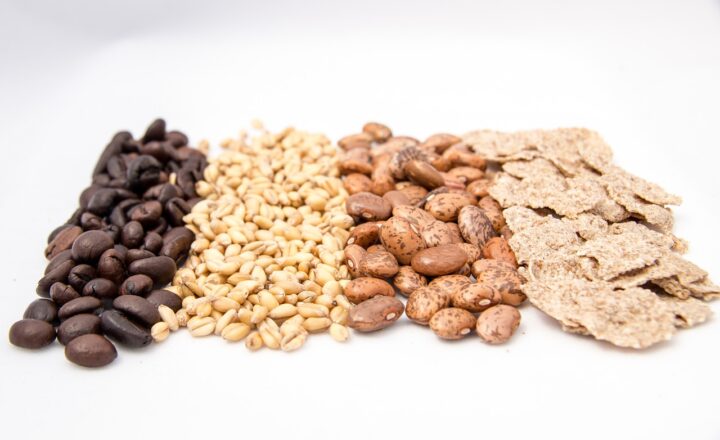The Surprising Link Between Gut Health and Mental Well-Being
November 18, 2024

In recent years, the health community has become increasingly aware of the significant relationship between gut health and mental well-being. While the gut has long been recognized for its role in digestion and physical health, emerging research is unveiling its fascinating connection to mental processes, mood regulation, and even conditions such as anxiety and depression. This article explores the intricate link between our gut microbiome and mental health, how gut health impacts our emotions, and what steps we can take to improve both areas of our lives.
1. Understanding the Gut-Brain Axis
The gut-brain axis (GBA) is a complex communication network linking the central nervous system with the enteric nervous system in the gastrointestinal tract. This bidirectional connection allows our gut and brain to exchange signals that can affect mood, mental clarity, and overall emotional health.
Key components of this axis include:
- Vagus Nerve: This cranial nerve plays a crucial role in transmitting signals between the gut and the brain, influencing emotions and quality of life.
- Neurotransmitters: Gut bacteria produce neurotransmitters such as serotonin and gamma-aminobutyric acid (GABA), which significantly affect mood and anxiety levels. In fact, about 90% of the body’s serotonin is produced in the gut.
- Hormones and Immune Response: The gut microbiome modulates inflammatory responses and hormone levels, further impacting mental health and cognitive functions.
The GBA explains why changes in gut flora can lead to alterations in mood and behavior, shedding light on conditions that were once thought to be purely psychological.
2. The Role of Gut Microbiome in Mood Regulation
The gut microbiome is a collection of trillions of microorganisms that reside in our intestines, including bacteria, fungi, and viruses. These microorganisms play a vital role in our overall health, including:
- Nutrient Absorption: Certain bacteria help ferment fibers and extract nutrients from food, which are essential for brain health.
- Immune Function: A balanced microbiome enhances our immune response, potentially protecting against inflammation-related mood disorders.
- Metabolism of Neurotransmitters: Gut bacteria assist in synthesizing and metabolizing neurotransmitters, which play a crucial role in regulating mood and anxiety.
Studies have demonstrated that individuals with an unhealthy gut microbiome often face higher levels of anxiety and depression. For instance, research shows that probiotics can lead to improvements in mood and anxiety symptoms, indicating that the composition of our gut microbiota may directly influence our mental well-being.
3. The Impact of Diet on Gut Health and Mental Well-Being
Diet plays a crucial role in shaping the gut microbiome. Certain foods promote healthy bacterial growth, while others can disrupt gut flora. Here are some dietary considerations to keep in mind:
- Fiber-Rich Foods: Consuming foods high in fiber, such as fruits, vegetables, legumes, and whole grains, can promote beneficial gut bacteria growth. These bacteria produce short-chain fatty acids, which have anti-inflammatory properties that benefit brain health.
- Fermented Foods: Foods like yogurt, kimchi, sauerkraut, and kefir are rich in probiotics, which can replenish beneficial bacteria in the gut and improve mood.
- Reduce Processed Foods: Highly processed and sugar-rich foods can disrupt the balance of gut bacteria, leading to dysbiosis, which is associated with anxiety and depression.
By opting for a balanced diet that supports gut health, you may not only improve your physical health but also boost your mental well-being.
4. Lifestyle Factors Influencing Gut Health and Mental Well-Being
Beyond diet, several lifestyle factors can impact our gut health and, subsequently, our mental well-being. Consider the following:
- Regular Exercise: Physical activity is known to promote a healthy gut microbiome and reduce symptoms of anxiety and depression. Aim for at least 150 minutes of moderate exercise each week to reap mental and physical benefits.
- Stress Management: Chronic stress negatively affects gut health and can lead to dysbiosis. Practicing stress-reduction techniques such as meditation, yoga, and deep-breathing exercises can help maintain a healthier gut and improve mental clarity.
- Sleep Hygiene: Quality sleep is essential for maintaining gut health. Disrupted sleep patterns can negatively impact the gut microbiome, leading to increased anxiety and mood disorders. Aim for 7-9 hours of restful sleep each night.
Making small changes to incorporate exercise, stress management, and proper sleep hygiene can foster a balancing effect on both mental well-being and gut health.
5. Tips for Improving Gut Health and Mental Well-Being
Here are practical tips to help you improve your gut health and mental well-being:
- Incorporate Probiotics: Add probiotic-rich foods to your diet and consider taking a probiotic supplement after consulting your healthcare provider.
- Stay Hydrated: Adequate water intake is essential for digestion and overall gut health. Aim for at least eight 8-ounce glasses of water a day.
- Limit Sugar Intake: Reduce your consumption of sugar and refined carbs to maintain a healthier balance of gut bacteria and support mental health.
- Focus on a Balanced Diet: Prioritize whole foods rich in nutrients over processed options for a supportive diet that benefits both gut and mind.
- Engage in Social Activities: Maintain social connections and engage in activities you enjoy to support both mental health and overall wellness.
Improving gut health does not just benefit your digestion; it plays a critical role in enhancing your mental well-being.
Conclusion: The Gut-Mind Connection
The relationship between gut health and mental well-being is becoming increasingly evident as science uncovers the complexities of the gut-brain axis. By understanding how our gut microbiome influences mood and emotional regulation, we can take proactive steps towards better health outcomes.
Incorporating a healthy diet, active lifestyle, and stress-management techniques can enhance our gut health and, in turn, influence our mental well-being positively. As research continues to explore this field, we can expect to see a growing recognition of the importance of gut health in our overall mental health narrative. Paying attention to what we eat and how we live may hold the key to achieving a better balance in our emotional lives.






